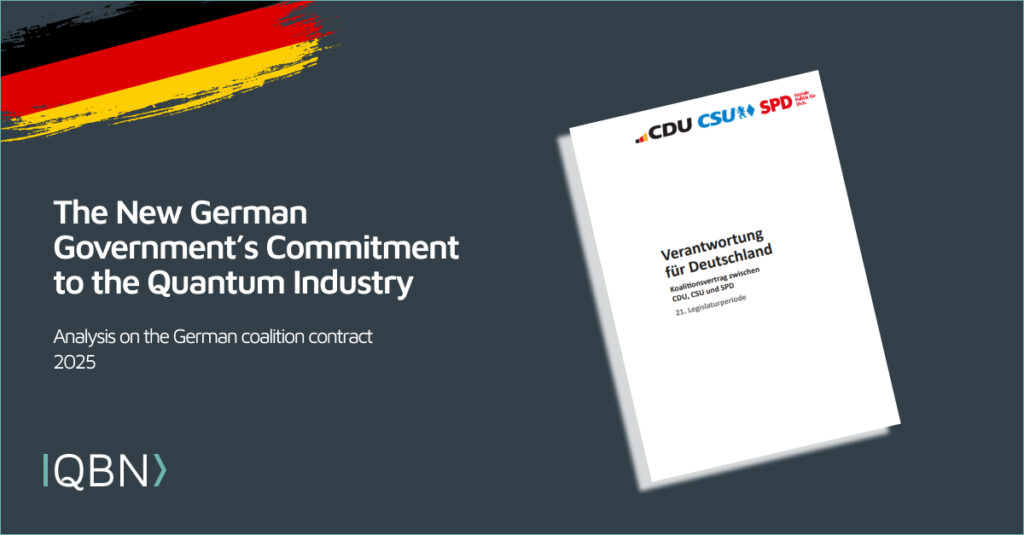Today, Friedrich Merz was elected as the new Chancellor of the Federal Republic of Germany. We congratulate him and look forward to a fruitful collaboration with him and the new government.
We have analysed the coalition agreement of CDU/CSU and SPD to see what commitment the quantum industry can expect for the years to come.
The new German government signals a strong commitment to strengthening Germany’s position in the global quantum landscape. We are happy to see the implementation of QBN’s recommendations through the focus on expanding the national quantum ecosystem, accelerating the development of high-performance quantum computers, and fostering competition in the field. However, some areas need further attention to ensure alignment with the broader quantum industry goals.
QBN will continue to collaborate with the German government and strongly advocate for the interests of its members and for the good of the quantum economy, in national and international politics.
Key Points from the Coalition’s Commitment:
- Expansion of the National Quantum Ecosystem: The focus on building a comprehensive quantum ecosystem is essential. QBN supports this approach and believes that a collaborative effort across industry, academia, and government is key to building a sustainable quantum future.
- Availability of High-Performance Quantum Systems: Making quantum systems accessible across the country is critical. QBN members are actively developing the hardware and software needed to power these systems, and the commitment to accessibility will play a major role in driving technological adoption.
- Accelerated Development of Quantum Supercomputers: The development of at least two high-performance quantum computers through competition is an encouraging step. However, fostering collaboration alongside competition will be crucial for faster innovation and scaling of these systems.
Beyond these direct quantum measures, the coalition’s broader focus on startup support, deeptech investment, innovation, and tech transfer lays important groundwork for a vibrant and resilient innovation ecosystem—principles that also strongly underpin QBN’s strategic priorities.
Here you can download the full coalition agreement: koalitionsvertrag-2025
Gaps and Considerations:
While the commitment to quantum computing is valuable, the focus could be broader. Other critical fields—like quantum sensing, quantum communication, and cybersecurity—remain unaddressed in the current wording, despite their relevance for both national security, technological sovereignty and economic growth. Additionally, the expansion of quantum networks and steps toward a quantum internet, which are essential for long-term competitiveness, are not mentioned. Also, for a vibrant and sustainable quantum economy, strategic investment in startups, SMEs, and applied R&D must go hand-in-hand with infrastructure and application development as well as industry adoption. The agreement also lacks concrete goals and measures. However, considering that the coalition agreement is very ambitious in many parts but in general lacks detail, this is ok.
While we see a strong commitment to quantum technologies, considering their importance for economic security, growth, national security, and technological sovereignty, it is crucial to place even greater emphasis on driving the advancement, commercialisation, and adoption of quantum technologies. This broader focus will be key to ensuring long-term competitiveness and success.
Let’s build a resilient and thriving quantum economy in Germany, Europe and globally!
QBN welcomes the new German government around Friedrich Merz as Chancellor and its commitment to advancing quantum technologies and strengthening the national ecosystem. QBN is looking forward to working with the new government and ministries to make the German economy quantum-ready and to help position Germany as a global quantum powerhouse.



